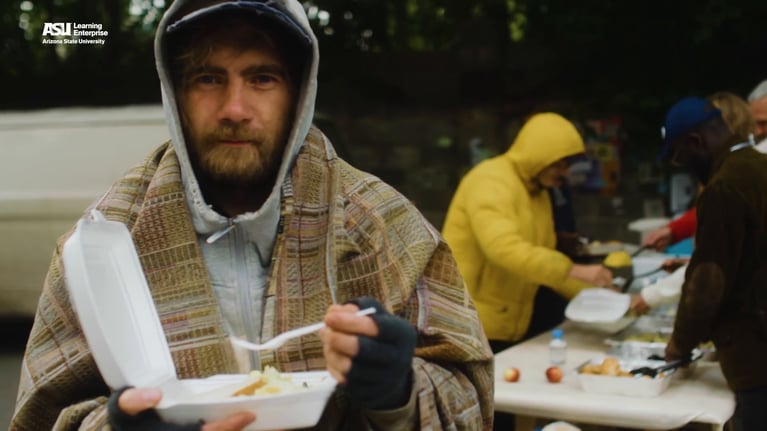Preparing for the apocalypse is not selfish; it's a responsible and prosocial act that benefits your community. Learn how preparing for emergencies and catastrophe can help manage crises, avoid shortages, and support emergency response systems. Discover tips for creating shelter-in-place kits, go bags, and building a pantry. By supporting each other and advocating for policies that aid households in need, we can enhance resilience in the face of any catastrophe.
When you think of the kind of people who prep for the apocalypse, you probably think about doomsaying, paranoid, selfish and fully-armed militia dudes, not, well, me.
But I am all about being prepared for the apocalypse. And I’m here to tell you that it doesn’t have to be selfish; in fact, being ready for disaster is one of the most important things you can do for your community in the face of a catastrophe - even if that catastrophe isn’t the end of the world.
Think of it this way: When, say, a natural disaster occurs, there is an acute crisis that needs to be managed, including the injuries, damage, and hazards that the disaster wrought. But, if households aren’t prepared, there is also a humanitarian crisis in the wake of any disaster.
We saw this when COVID hit; people weren’t properly prepared and many struggled to meet their needs at that moment, leading to shortages and strained supply chains. If households are prepared for crises, we can avoid shortages of essential supplies, because households will already have basic supplies as part of their emergency supply kits.
This means that - by preparing for emergencies - you can help the community that you are embedded in actually be more resilient in the face of shocks. Being ready for the apocalypse isn’t selfish; it’s actually responsible and prosocial. When households are prepared, this allows for some slack in the emergency response system, letting the organized response - whether that’s governmental or charities - focus on the acute crisis itself.
So what can you do to be more prepared for the apocalypse - or for more run-of-the mill catastrophes?
For one, you can make sure to have your shelter-in-place kit ready with all you need to survive at home for 72 hours without power or water. Some essentials include enough water (about a liter per day per person), non-perishable food (enough for you and your family members including your pets), any essential medicines, a first aid kit, a flashlight and a hand-crank radio. For many disasters, sheltering in place will be your best option. But in case you have to leave your home, having a ready go bag - or bug out bag - is essential. You can find more tips about emergency prep on ready.gov.
And - if you want to take it to the next level - you can start building your pantry so you have enough food (that you actually like to eat) to last for a few weeks or months. Having a deep pantry can also make your day-to-day life easier. I can’t tell you how many times my deep pantry has come in handy for those apocalyptic Tuesdays when there’s nothing in the fridge.
Not only is it prosocial to prepare for the apocalypse because your preparation makes your community more resilient, but you can also help your community be even more resilient by supporting those households who might not have enough resources to prepare. If we all support each other in being prepared and support policies that help households in need be prepared, we will ultimately be more resilient - as individuals and as a society - in the face of apocalypses, both large and small.


